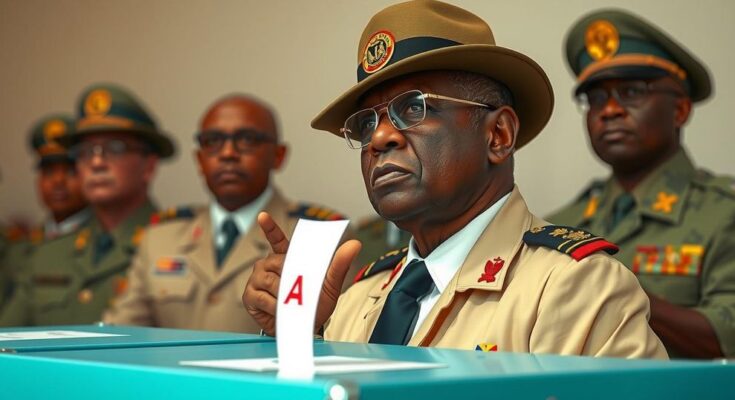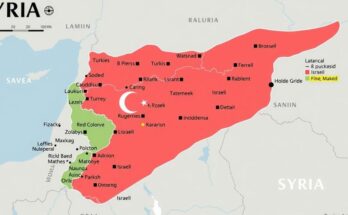Chad held parliamentary and regional elections aimed at concluding a three-year military transitional period. The elections are boycotted by major opposition parties, citing concerns over electoral credibility. The military leader, Mahamat Idriss Deby’s governance and previous electoral disputes overshadow the significance of these elections as the first step back to democracy in over a decade.
Chadians participated in parliamentary and regional elections aimed at concluding a three-year transitional phase following military rule. This election, the first in over a decade, has been boycotted by the main opposition, who have accused the government of failing to facilitate a credible electoral process. The military leader, Mahamat Idriss Deby, assumed power in 2021 and recently emerged victorious in a controversial presidential election. The political landscape in Chad, a nation burdened by poverty yet rich in oil, has remained stagnant in terms of democratic processes since its independence in 1960.
With at least eight million registered voters, the election will determine 188 legislators for the newly constituted National Assembly, alongside representatives at provincial and municipal levels. Despite the historical significance of this event as the first planned return to democracy in the Sahel region, more than ten opposition parties, including the leading Transformers party, have chosen not to participate. The Transformers party, which criticized the electoral process as a mere facade for maintaining Deby’s power, had its candidate, Succes Masra, emerge as a prominent voice in the boycott and warned voters against participating, claiming it would undermine their democratic aspirations.
Within the backdrop of Chad’s electoral challenges, security concerns loom large. The nation grapples with violent threats from Boko Haram and a shift in military relations with its traditional ally, France. Political experts underscore that the critical issue surrounding this election is not merely the potential loss of democracy, but rather the absence of a robust opposition, causing apprehension about the future of democratic governance in the country as it navigates through its transitional phase. The election results are anticipated within a fortnight, and they will determine the country’s immediate political trajectory.
This article covers the parliamentary elections in Chad, which are pivotal as they signal the end of military rule that has persisted for three years. Following the overthrow of longtime President Idriss Deby Itno in 2021, his son, Mahamat Idriss Deby, has led the country. The current elections are significant, being the first parliamentary elections in over ten years, providing a potential return to democratic processes in a nation characterized by a history of political instability and authoritarian governance post-independence in 1960.
In summary, the parliamentary elections in Chad mark a significant yet contentious step towards ending military governance and re-establishing democratic norms. Despite the importance of this electoral process, the widespread opposition boycott highlights the challenges faced by the transitional government in securing genuine democratic legitimacy. The outcome of this election may well shape the future political landscape of Chad amid ongoing security concerns and a pressing need for a credible democratic transition.
Original Source: abcnews.go.com




